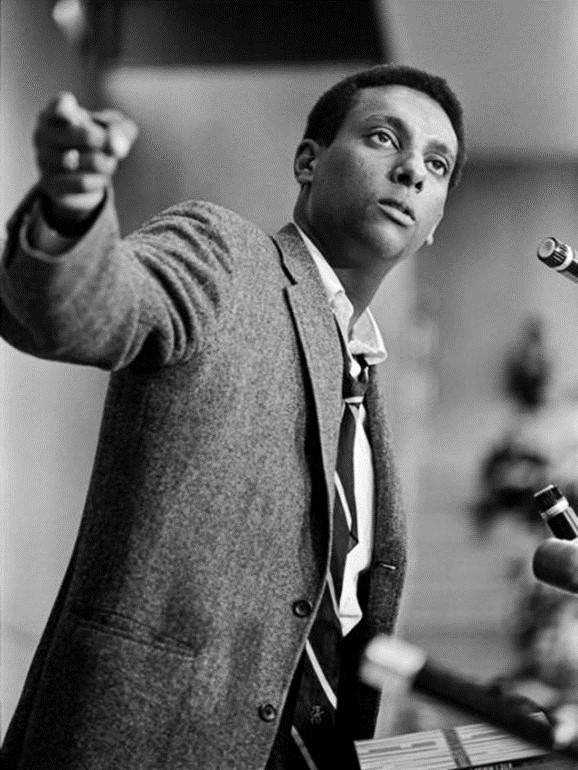Lauren Purchase took the ‘Philosophical Britain‘ module at Queen Mary in 2016. In this post she writes about ‘Vegetarian’ as a philosophical keyword.
Undoubtedly, I was just one of the 1.2 million individuals who the Vegetarian society recognises to abstain from both meat and fish within the United Kingdom who were recently targeted by the January 2016 advertising campaign for the restaurant chain Gourmet Burger Kitchen. The marketing campaign perpetuated the dominant societal attitude that eating meat is both the tastiest and most natural food option through multiple images, including the one below, being present on public transport.

Gourmet Burger Kitchen’s January 2016 Advertising Campaign, Image from: http://www.huffingtonpost.co.uk/2016/01/18/gourmet-burger-kitchen-offends-vegetarians-with-advertising-campaign_n_9008024.html
This campaign inevitably caused backlash from vegetarians, resulting in public media attention from significant papers such as the Independent and a subsequent withdrawal by GBK of the most offensive images. However, the damage had already been fully effected to the image of the contemporary vegetarian. That the undermining of the vegetarian extended far beyond GBK’s public images and their connotations is concluded in the statement released by Gourmet Burger itself on their Facebook page. Although GBK attempted to apologise, the company evidently did not understand the hostile reaction by the population’s vegetarians, claiming the campaign was ‘light-hearted’. The reception of the vegetarians to the campaign was thereby presented as melodramatic and representative of their humourless nature which has continuously been portrayed in modern British culture.
Vegetarians themselves undeniably recognised the existence of this stereotypical image in the 1960’s with the 1961 formation of the meatless restaurant Cranks. Crank was evidently a derivative of the word cranky which therefore deemed all vegetarians simultaneously as ill-tempered, odd and sickly. The term crank was thereby adopted ironically by vegetarians in the 1960’s in order to gain a form of control over their own image and humorously combat negative associations.
Despite the best intentions in the 60’s, however, to literally bend or ‘crank’ societal attitudes towards vegetarians, it is evident that derision has still continually prevailed. Vegetarianism has long been mocked through public culture through many different mediums, obviously including advertising images, such as those demonstrated by GBK, but also through theatre, television and popular public personalities. The ability of all of the three latter forms to ascribe a negative image to vegetarians is demonstrated in the later televised 1999 stand-up comedy performance by comedian Jack Dee at London’s Gielgud Theatre in which he claimed that the only point vegetarians were able to ‘muster enough energy to smile for the day’ was upon the discovery of mad cow disease which was able to reinforce their case for vegetarianism. This sketch evidently again highlights the vegetarian as being miserable and sickly from a poorer diet.

Gourmet Burger Kitchen’s January 2016 Advertising Campaign, Image from: http://www.huffingtonpost.co.uk/2016/01/18/gourmet-burger-kitchen-offends-vegetarians-with-advertising-campaign_n_9008024.html
Nevertheless, the negative portrayals of vegetarians within the media could also be argued to have the ability to raise awareness of vegetarianism and hint at the potentially persuasive philosophical reasoning behind its adoption. This is true even in the case of the GBK marketing campaign, especially with regard to the image caption ‘they eat grass so you don’t have to.’ The contemporary Australian moral philosopher, Peter Singer, for example, has recognised that ‘a reduction in the amount of animal flesh consumed by Westerners would release enormous amounts of grain, soybeans and other high-quality plant foods, now being fed to animals, for hungry and malnourished humans.’ [1] Singer believes this argument proves that the theory of utilitarianism, in which pain is minimised and pleasure maximised, naturally leads to the necessity for one to become a vegetarian. Although there exists inconveniences with abstaining from meat, including great losses for animal producers, Singer argues that the positive long term consequences of vegetarianism in easing world hunger far outweigh any drawbacks, concluding vegetarianism logical.
However, contemporary philosophical debate exists with regard to vegetarianism, with American philosopher Tom Regan challenging Singer’s argument. Regan claims that Singer’s utilitarianism stance fails to justify his adoption of vegetarianism due to his lack of proof and therefore has instead offered an ethical theory based on rights to substantiate vegetarianism. Regan believes that the population should become vegetarians as all living things ‘have equal inherent value and an equal prima facie right not to be harmed.’ [2] Evidently, both Singer and Regan have become influential in the British philosophical debate for the adoption of a vegetarian diet.

Philosopher Mary Midgley, Image from: http://www.theguardian.com/books/2010/sep/25/all-souls-fellows-general-paper
Nonetheless, Britain is not solely dependent upon notable foreign philosophers to publicly discuss vegetarianism as British moral philosopher Mary Midgley has also made significant contribution to the debate. Midgley has criticised the natural superiority which humans believe they have over animals due to the continuing existence of ‘the model of concentric circles dividing us from them’ [3], despite the fact that ‘we are not just rather like animals; we are animals.’ [4]
The philosophical debate over the righteousness of vegetarians, however, has long preceded contemporary philosophers, with 6th century Pythagoras being ‘the father of philosophical vegetarianism.’ [5] In fact, Pythagoras was so influential in the defensive argument for a meatless diet that ‘Pythagoreanism or the Pythagorean diet were synonymous for vegetarianism well into the nineteenth century.’ [6] As the Oxford English Dictionary confirms, the word vegetarian was only in general use from 1847 onwards through the formation of the Vegetarian Society in the same year at Ramsgate. Pythagoras undeniably remains a representative of many modern vegetarians by putting forth the three main arguments which still act as paramount in our reasoning for the justification of vegetarianism – namely religion, health and ethics. Firstly, Pythagoras believed in transmigration which formed the foundation for his religious basis of vegetarianism as this doctrine recognised the ability of the soul post death to be transferred into another body, including that of an animal. Furthermore, Pythagoras believed that it was morally wrong to cause unnecessary pain to harmless animals, even more so when the aim was purely for edible purposes which would result in an unhealthier body and mind.
Although the work Ethical Vegetarianism: From Pythagoras to Peter Singer has noted that the reasoning behind vegetarianism has undergone changes from antiquity to the present day, it is indisputable that the three key arguments of Pythagoras continued, and still continue, to be utilised to give credence to vegetarianism. For instance, the predominant arguments for vegetarianism were ethical in antiquity, religious in the Middle Ages and renaissance period, increasingly ethical again during both the eighteenth and nineteenth centuries and multiple in the modern day, including both health and ethical concerns.[7] Perhaps, more importantly, this historical study of vegetarianism highlights the constant presence and discussion of a vegetarian diet, thereby undermining the previously demonstrated societal attitude deeming vegetarians as unnatural.
The means through which vegetarians substantiated their position inevitably initially revolved around literature, including Percy Shelley’s 1813 ‘A Vindication of Natural Diet’, however in more recent times vegetarians have increasingly been able to utilise more creative means to both portray their beliefs and attempt to persuade others to embrace their lifestyle.
In the case of the contemporary English illustrator, Sue Coe, art has been effectively utilised to both evidence and justify her adoption of a meatless diet in this 2011 image:

Sue Coe’s 2011 pro-vegetarian artwork, Image from http://www.troutgallery.org/exhibitions/detail/15
Music has also acted as an important medium through which vegetarianism has been promoted and the societal status quo has been questioned. This is most explicitly evident in the 1985 song Meat is Murder by the Manchester band, The Smiths. Within this song the lead singer Morrissey sings ‘the flesh you so fancifully fry is not succulent, tasty or kind, its death for no reason, and death for no reason is murder.’
https://youtu.be/xacRTqk5QFM
Despite the methods of the presentation of vegetarianism evolving, however, as it has already been noted, key elements of vegetarianism remained consistent throughout history. Not only did the reasoning behind a meatless diet largely remain consistent but furthermore vegetarians have continuously been linked to subversive movements which have challenged the highest societal authorities. Tristram Stuart has noted that during the middle ages the two key heretical sects opposing the Church, namely the Cathars and Manicheans, had adopted a meatless diet and even the 1789-1799 French Revolution became associated with vegetarianism as it represented equality by denouncing the privileged aristocratic carnivorous diet. [8] That vegetarians continue in modern society to be linked to causes which challenge the societal norm is concluded in the works of American feminist Carol Adams. Adams claims that feminism and vegetarianism are intrinsically linked as both women and animals are viewed by the current patriarchal society as merely possessions which are to be dominated and controlled. [9]
The link between the oppression of both animals and women is constantly expressed throughout everyday culture, as is evidenced in the advert for the Manchester burger restaurant, Filthy cow:

The Burger Chain Filthy Cow’s 2016 Advertising Campaign, Image from: https://twitter.com/filthycowuk?ref_src=twsrc%5Egoogle%7Ctwcamp%5Eserp%7Ctwgr%5Eauthor
Yet even though vegetarianism has consistently been associated with radicalism, it has never been able to gain enough adherents within Britain to bring about a revolutionary wide-spread adoption of vegetarianism and a subsequent mass decline of both animal deaths and industrial livestock production. This is perhaps due to its connotations with revolution which has threatened society and thereby led to its constant undermining and mocking throughout history. Furthermore, many significant authorities have also denied the necessity of adopting a vegetarian diet, including St. Thomas Aquinas, who believed that humans were naturally superior to animals, being more rational.
Nevertheless, undeniably I can fortunately conclude that there still exists both a point and hope for individuals who have made the choice to become vegetarian. As Singer has acknowledged, the philosopher Jonathan Glover has proven ‘the absurdity of denying that we are each responsible for a share of the harms we collectively cause’ [10], confirming that with each vegetarian a slight reduction occurs in the demand for slaughtered animal meat. Conclusively, although the 2% of the British population who are vegetarians are not realistically making a great impact upon the supply and demand of animal meat, ultimately ‘becoming a vegetarian is a way of attesting to the depth and sincerity of one’s belief in the wrongness of what we are doing to animals.’ [11] It is, therefore, only from the position of a vegetarian that one can begin to persuasively encourage others to stop consuming meat which could eventually create real change.
Further Reading
David DeGrazia, Animal Rights: A Very Short Introduction (Oxford: Oxford University Press, 2002)
Cultural Encyclopedia of Vegetarianism, ed. by Margaret Puskar-Pasewicz (California: Greenwood, 2010)
Tom Regan, ‘Utilitarianism, Vegetarianism and Animal Rights’, Philosophy and Public Affairs, 9/4 (1980), pp. 305-324
Peter Singer, Animal Liberation (London: Pimlico, 1995)
Colin Spencer, The Heretic’s Feast: A History of Vegetarianism (Hanover: University Press of New England, 1996)
Bibliography
Books and Articles
Carol Adams, The Sexual Politics of Meat (New York: Bloomsbury, 1990)
Daniel Dombrowski, The Philosophy of Vegetarianism (Amherst: The University of Massachusetts Press, 1984)
Mary Midgley, Animals and Why They Matter (Georgia: University of Georgia Press, 1998)
Mary Midgley, Beast and Man: The Roots of Human Nature (London: Routledge, 2002)
Tom Regan, The Case for Animal Rights (California: University of California Press, 2004)
Peter Singer, ‘A Vegetarian Philosophy’, in Consuming Passions: Food in the Age of Anxiety, ed. by Sian Griffiths and Jennifer Wallace (Manchester: Mandolin, 1998)
Peter Singer, ‘Utilitarianism and Vegetarianism’, Philosophy and Public Affairs, 9/4 (1980), pp.325-337
Tristram Stuart, The Bloodless Revolution (New York: W.W. Norton & Company, 2007)
Ethical Vegetarianism: From Pythagoras to Peter Singer, ed. by Kerry Walters and Lisa Portmess (New York: State University of New York Press, 1999)
Websites and Online Databases
The Vegetarian Society, https://www.vegsoc.org/, [accessed 7 February 2016]
Definition of vegetarian in the OED, http://0-www.oed.com.catalogue.ulrls.lon.ac.uk/view/Entry/221880?redirectedFrom=vegetarian#eid, [accessed 8 February 2016]
Internet Archive, Percy Bysshe Shelley, A Vindication of Natural Diet, 1813, https://archive.org/details/vindicationofnat00shelrich, [accessed 6 February 2016]
Videos
YouTube, Jack Dee Live and Uncut, 1999, https://youtu.be/luEPXmRJwxA?t=2m8s, [accessed 10 February 2016]
YouTube, The Smiths, Meat is Murder, 1985, https://youtu.be/xacRTqk5QFM, [accessed 10 February 2016]
References
[1] Peter Singer, ‘Utilitarianism and Vegetarianism’, Philosophy and Public Affairs, 9/4 (1980), pp.333-334
[2] Tom Regan, The Case for Animal Rights (California: University of California Press, 2004), p. 324
[3] Mary Midgley, Animals and Why They Matter (Georgia: University of Georgia Press, 1998), p.32
[4] Mary Midgley, Beast and Man: The Roots of Human Nature (London: Routledge, 2002), p.xxxiii
[5] Daniel Dombrowski, The Philosophy of Vegetarianism (Amherst: The University of Massachusetts Press, 1984), p.35
[6] Ethical Vegetarianism: From Pythagoras to Peter Singer, ed. by Kerry Walters and Lisa Portmess (New York: State University of New York Press, 1999), p.13
[7] Ethical Vegetarianism: From Pythagoras to Peter Singer, ed. by Kerry Walters and Lisa Portmess (New York: State University of New York Press, 1999)
[8] Tristram Stuart, The Bloodless Revolution (New York: W.W. Norton & Company, 2007)
[9] Carol Adams, The Sexual Politics of Meat (New York: Bloomsbury, 1990)
[10] Peter Singer, ‘A Vegetarian Philosophy’, in Consuming Passions: Food in the Age of Anxiety, ed. by Sian Griffiths and Jennifer Wallace (Manchester: Mandolin, 1998), p.75
[11] Peter Singer, ‘Utilitarianism and Vegetarianism’, Philosophy and Public Affairs, 9/4 (1980), p.337




